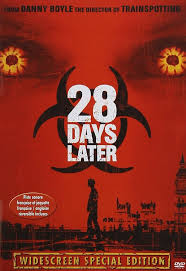The Cultural Impact of 28 Days Later

Introduction
’28 Days Later’, directed by Danny Boyle and released in 2002, is a landmark film in the horror genre that has left an indelible mark on cinema and popular culture. Combining elements of horror with political commentary, the film redefined zombie apocalypse narratives and is often credited with revitalizing the genre, paving the way for subsequent films and television series.
Plot Overview
The film is set in a post-apocalyptic Britain, where a virus that causes rage is accidentally released, leading to the collapse of society. The story follows Jim, played by Cillian Murphy, who wakes from a coma 28 days after the outbreak. He encounters a small group of survivors as they navigate the dangers of a world overrun by ‘infected’ individuals. The film explores themes of survival, human nature, and societal breakdown.
Impact on Cinema
’28 Days Later’ garnered critical acclaim for its innovative cinematic techniques, including the use of digital filmmaking, which allowed for a raw and gritty aesthetic. The film’s opening sequence, featuring an empty London, helped create a haunting atmosphere that resonated with audiences. Additionally, the portrayal of the infected as fast-moving, aggressive creatures diverged from the traditional slow-moving zombies, introducing a new level of fear.
Relevance in Pop Culture
The film’s influence extends beyond the cinema; it has had significant implications for video games, literature, and television. The successful blend of horror and social commentary sparked debates on moral dilemmas during crises, making it a topic of discussion in academic circles. It has inspired other works in the genre, such as ‘The Walking Dead’ series, which also explores survival and the complexities of human relationships in dire situations.
Conclusion
With its thought-provoking themes and groundbreaking approach, ’28 Days Later’ serves as a critical reflection on humanity’s response to crisis, making it a quintessential example of modern horror cinema. It continues to be relevant today, encouraging new generations to confront questions of morality, survival, and the essence of humanity. As we reflect on its impact, it’s clear that ’28 Days Later’ will remain a cornerstone of horror film history.









